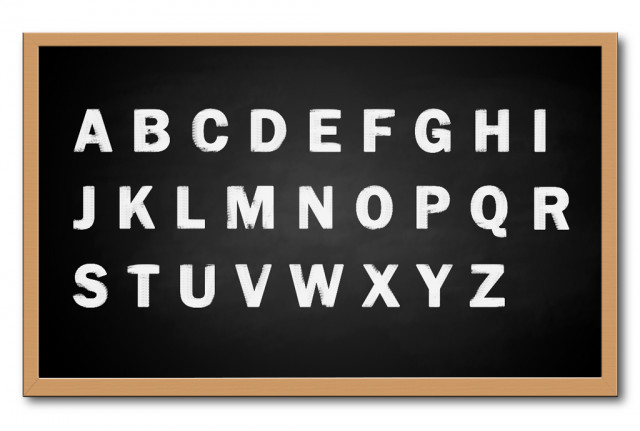Teacher training: Most teachers get zero for English
56% of public primary and middle teachers and 62% of private teachers lack basic knowledge, according to study.

According to the assessment, 30% of government and 22% of private teachers are at the beginner’s level for English A1. PHOTO: FILE
More than half of teachers in public primary and middle schools, and an even higher proportion of private school teachers, lack basic knowledge of English, even the ability to understand and use simple phrases, according to research conducted earlier this year.
The findings are part of a report – titled ‘Can English Medium Education Work in Pakistan? Lessons from the Punjab’ – that assesses the abilities of more than 2,000 teachers at public and private primary and middle schools.
According to the report, 56% of teachers at public primary and middle schools have “no measurable standard of functional language ability”. The situation in private schools, according to the report, is even worse, with 62% of teachers lacking basic knowledge of the language.
The Punjab government announced in 2009 that English would be the medium of instruction in all government schools in the province. The British Council and the Schools Education Department launched the Punjab Education and English Language Initiative (Peeli) earlier this week to address this shortcoming.
Findings
The report contains research conducted by the British Council, the Directorate of Staff Development (DSD) and the Idara-i-Taleem-o-Agahi, with support from the Punjab Education Foundation. The researchers surveyed more than 2,000 teachers from March 27 to April 23 this year, assessing speaking, listening, reading and writing skills.
It rates the teachers’ abilities on the Common European Framework of Reference for Languages (CEFR) scale. According to the assessment, 30% of government and 22% of private teachers are at the beginner’s level for English A1. Twelve per cent of private and government school teachers fall in category A2, also called the pre-intermediate level. And 3% of private and 2% of government teachers are in the B1 category, or the first level of the intermediate bracket.
During the course of the study, a new A0 level was established for those with no measurable standard of functional language ability. Fifty-six per cent of government teachers and 62% of private teachers were found to be in this category.
Things were slightly better at the middle school level than the primary school level, with 38% of middle teachers and 65% of primary teachers judged to be in the A0 category. Almost 94% of teachers at English medium schools were deemed to be in the pre-intermediate (A2) or lower levels (A1 or A0) of English language ability.
Training
“While the government took the leap of imposing English as the medium of instruction in view of the disparity between private and government schools, the ground reality is that teachers are not equipped to deal with this change,” says Soper Bhat, a training and development consultant with the Peeli project.
Bhat says that the need for extensive training became obvious last year, when the British Council assisted the DSD with the Primary English Teacher Training project. Some 28,000 teachers were trained in the first batch starting in February 2012, and another 30,000 over the last summer.
“We found out that teachers didn’t even know the language. They needed to learn English before teaching it in the classrooms,” she says.
This is where Peeli, a five-year programme that aims to train 330,000 teachers for the potential benefit of 15 millions students, comes in. The British Council resource centre in Lahore will be at the centre of the training regime, while digitally connected to DSD centres all over the province that will host the training sessions for the teachers.
Besides improving language skills, the training also seeks to impart innovative teaching methodologies that make learning fun and engaging, says Bhat.
“For this we will train teachers using the same methods we will ask them to introduce in the classrooms. After experiencing it themselves, they will understand the value of the techniques.”
She adds that the training will not just help students in getting better teachers. “For higher education, a good understanding of the English language is imperative. Also, for teachers, it will help them gain access to better employment opportunities,” she says.
Published in The Express Tribune, October 11th, 2013.


















COMMENTS
Comments are moderated and generally will be posted if they are on-topic and not abusive.
For more information, please see our Comments FAQ